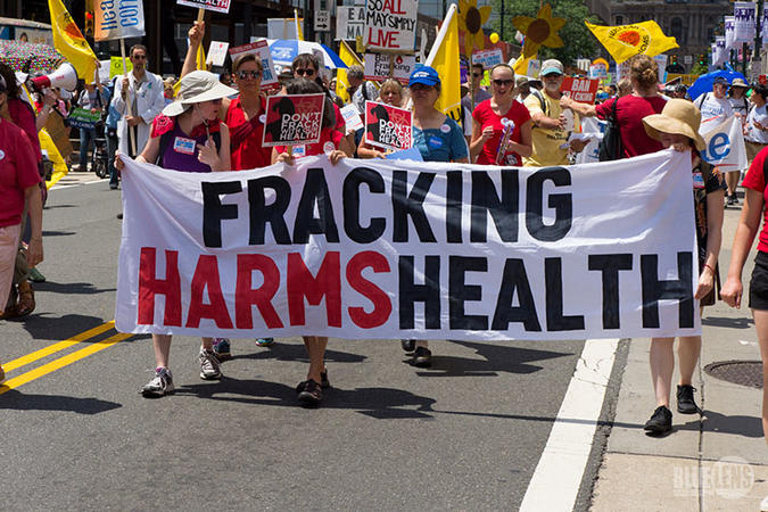Here’s the problem: In 2010, the oil and gas industries operating in Pennsylvania were acquiring land leases that would allow them to extract natural gas using the process known as “fracking.” Many rural municipalities had been targeted already for this activity, and the state Legislature had enacted laws forbidding local governments from limiting or banning the industrial activities related to fracking. The people of Pittsburgh were alarmed to learn that a few larger open spaces — and even small parcels of land in the city — had been quietly leased for fracking. The nine members of the city council were hearing from their concerned district constituents and one of the council members put out a call for advice to environmental groups, land-use law firms, and other experts. A group discussion ensued in which nearly 30 organizations participated. The overarching question raised by the council member was, “How can Pittsburgh protect its people, environment, and water supply from the toxic effects of industrial gas extraction in the city?”
Here’s how one organization is working on the problem: After hearing advice from organizations suggesting appeals to state regulatory agencies and recommendations for new local zoning laws that might limit fracking to designated “heavy industrial zones,” the council member asked another important question, “Don’t these proposed ‘solutions’ actually allow fracking, rather than stop it?” The almost unanimous answer that came back was that “it’s illegal to stop the fracking, because of state preemption. The best you can do is try to limit the harm.”
The Community Environmental Legal Defense Fund (CELDF) was asked for its recommendations. Rather than “regulate” the amount of harm that fracking would inflict on a city that had been cleaning up smog and brownfields for decades following the withdrawal of the steel industry, CELDF offered to draft a local civil rights law that would guarantee certain community rights, including the right to clean air, pure water, the rights of natural ecosystems to flourish, and the right to be free from toxic trespass (poisoning). The proposed city ordinance, known as a Community Bill of Rights, would protect the rights it established by banning any new industrial extraction of natural gas. Several aspects differentiated the Community Bill of Rights from proposals for regulating fracking through local land use and zoning laws. Not only did it focus on protecting fundamental rights against violation by industrial extraction of gas and recognized those rights as higher law than state administrative law, but it bypassed the entire regulatory system by asserting the authority of the city to protect said rights by exercising the right of local community self-government.
Results:
- In 2010, the city council of Pittsburgh, Pennsylvania, unanimously (9-0) adopted the Pittsburgh Community Bill of Rights, which created enforceable rights to clean water and air, recognized legal rights of the natural environment to exist and flourish, reaffirmed the right of local community self-government, and, in order to protect these rights, banned the extraction of natural gas using fracking and related activities.
- News of Pittsburgh’s bold policy of protecting the rights of people and nature by banning fracking spread through national media and by word-of-mouth. Following Pittsburgh’s legislative action, multiple other municipalities in Pennsylvania — and then in Ohio, Colorado, California, and New Mexico — drafted and adopted Community Bills of Rights. Corporate objections to adoption of the Pittsburgh measure included threats of lawsuits based on supposed violations of “corporate rights” and breach of state laws preempting local governance over corporate activities. Despite these early threats, to date there has been no litigation brought against the Pittsburgh Community Bill of Rights.
Learn more from:
This case study is adapted from our latest book, “Sharing Cities: Activating the Urban Commons.” Get a copy today.
This piece was edited by Emily Skeehan.
This article is cross posted with permission from Shareable.net.





